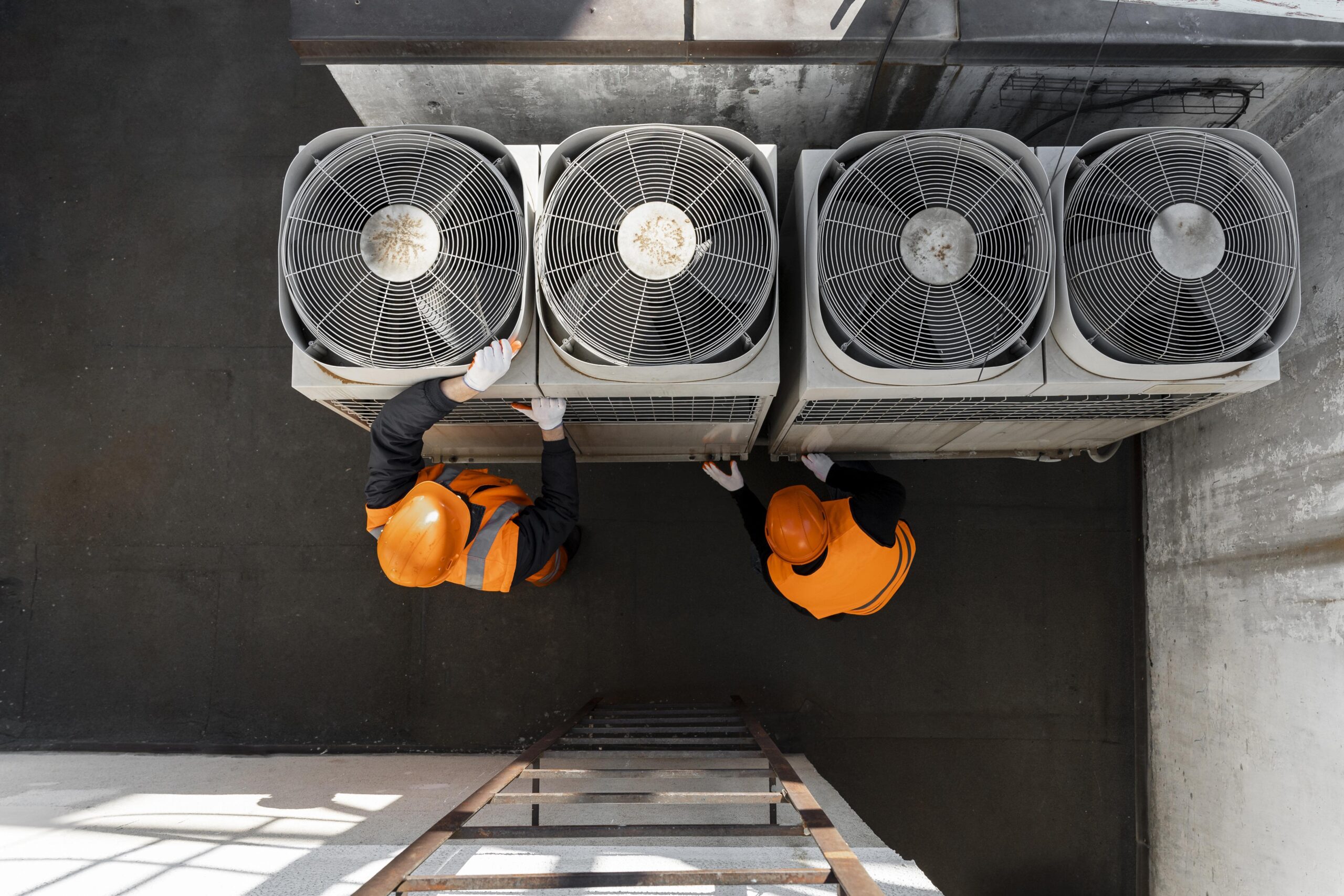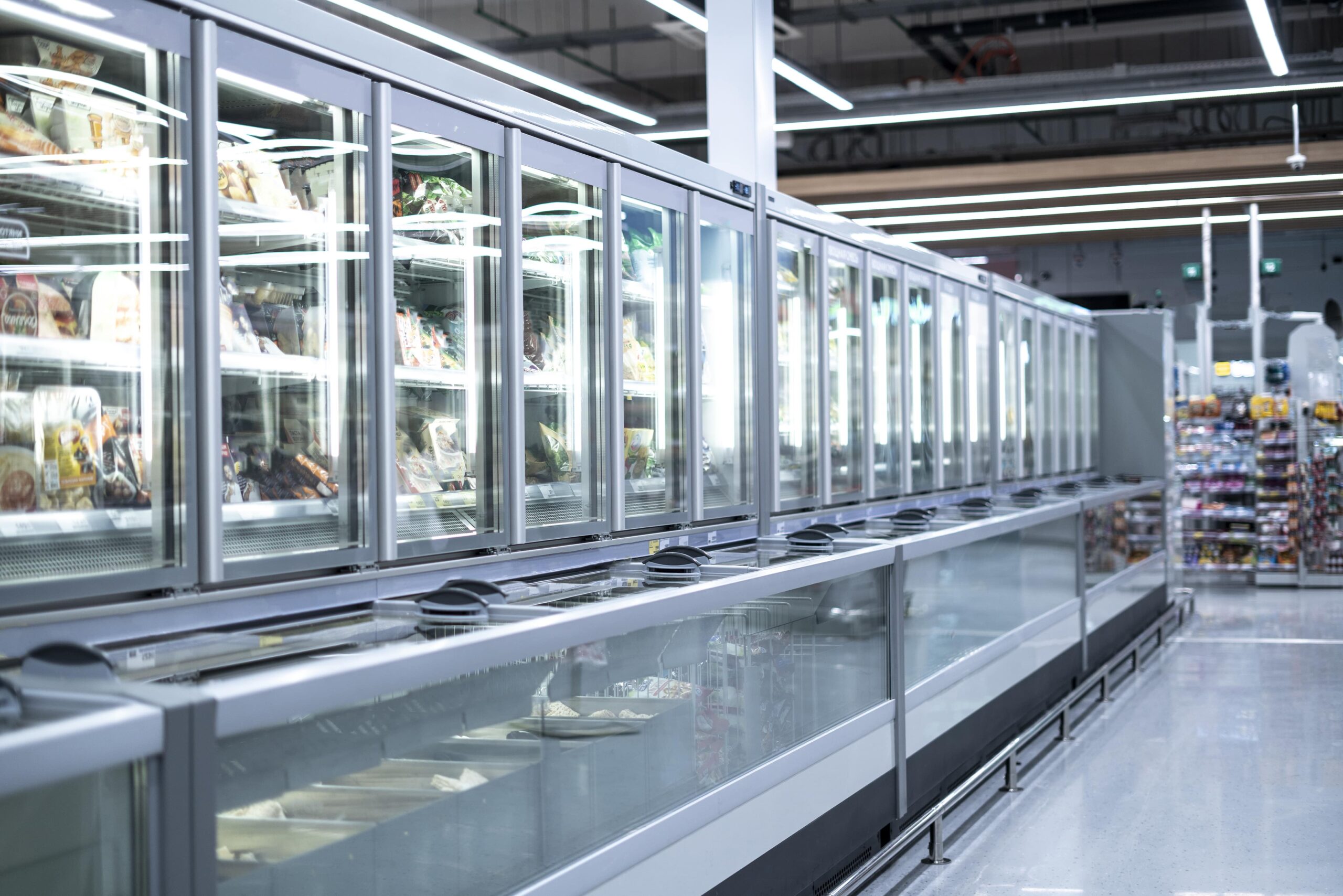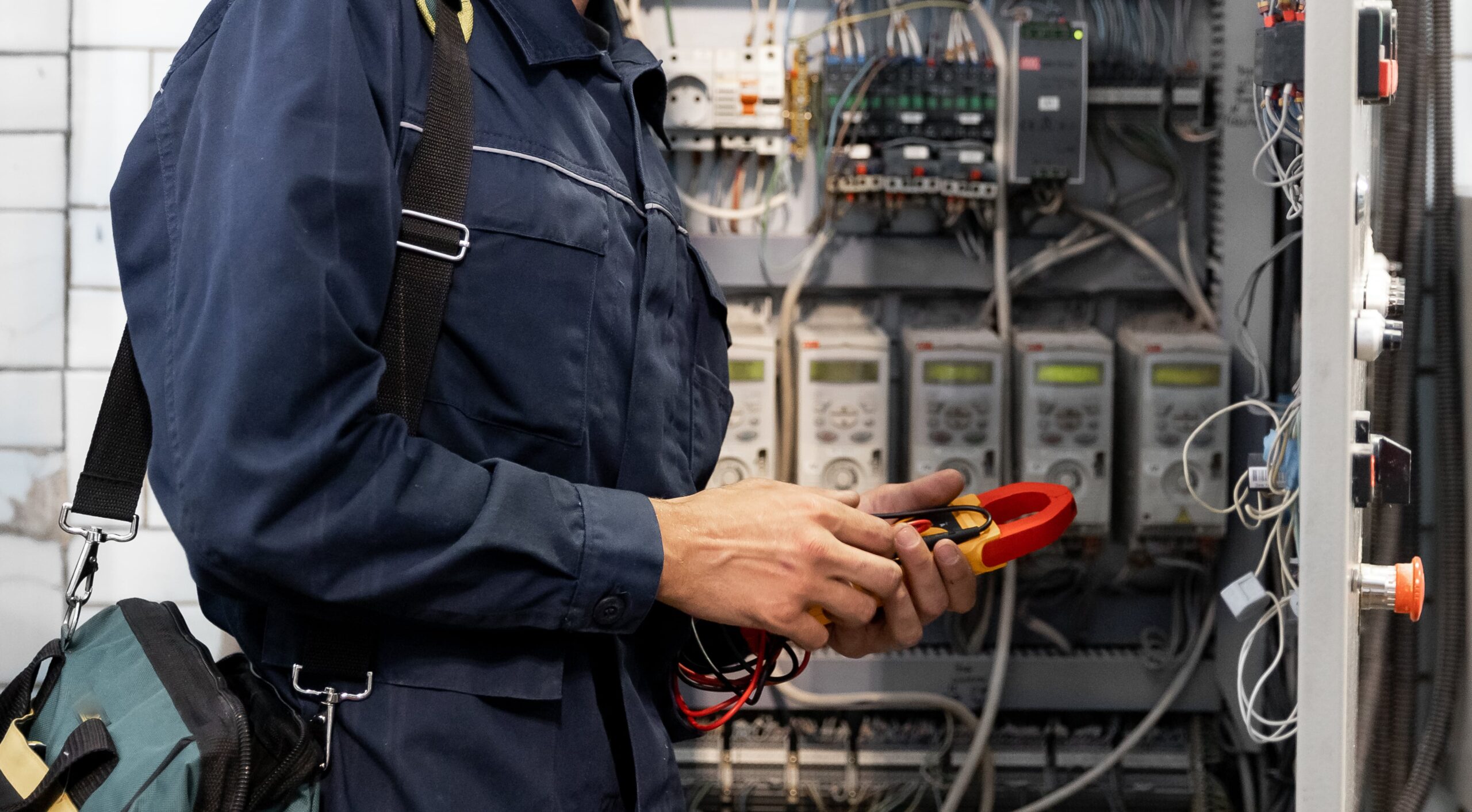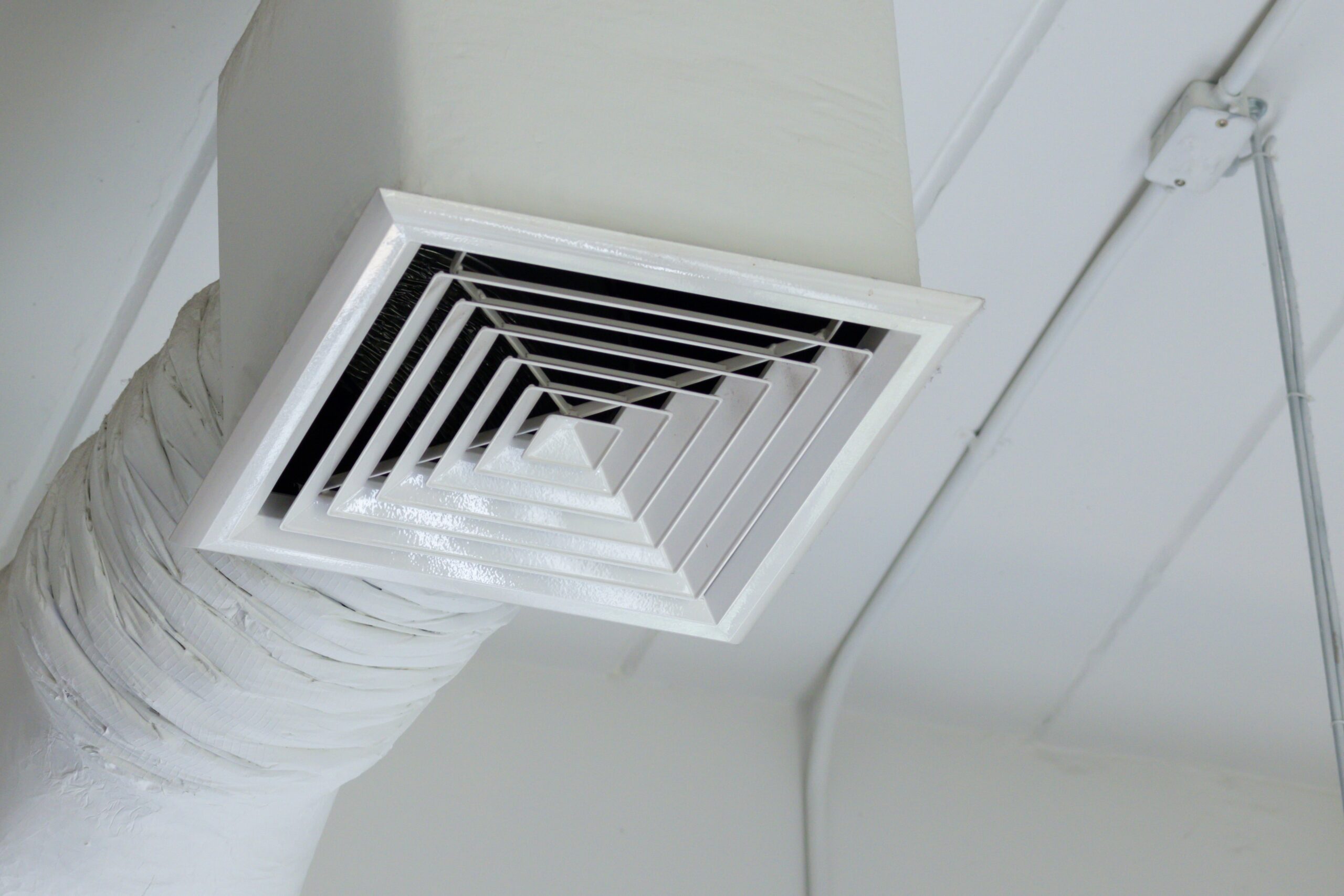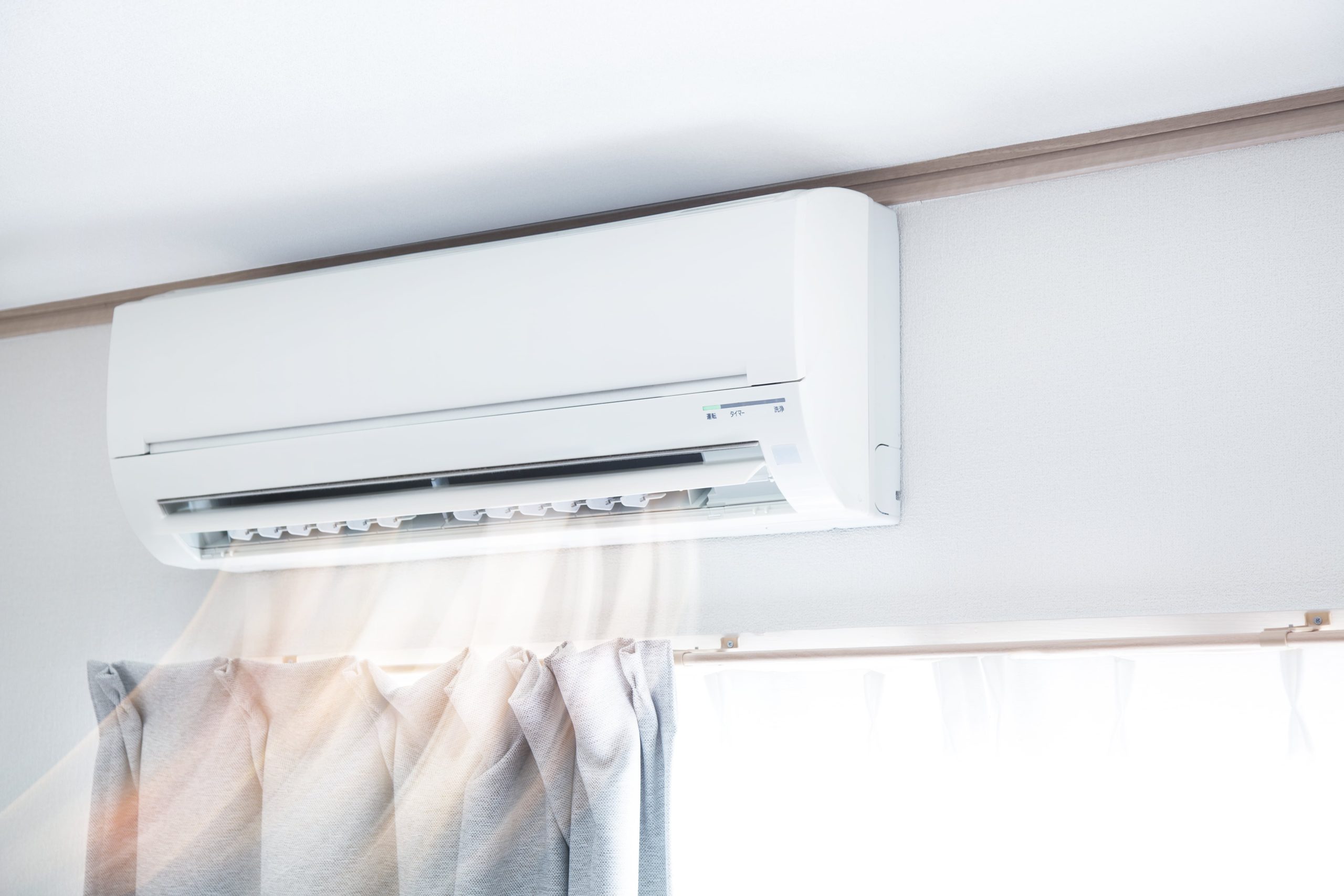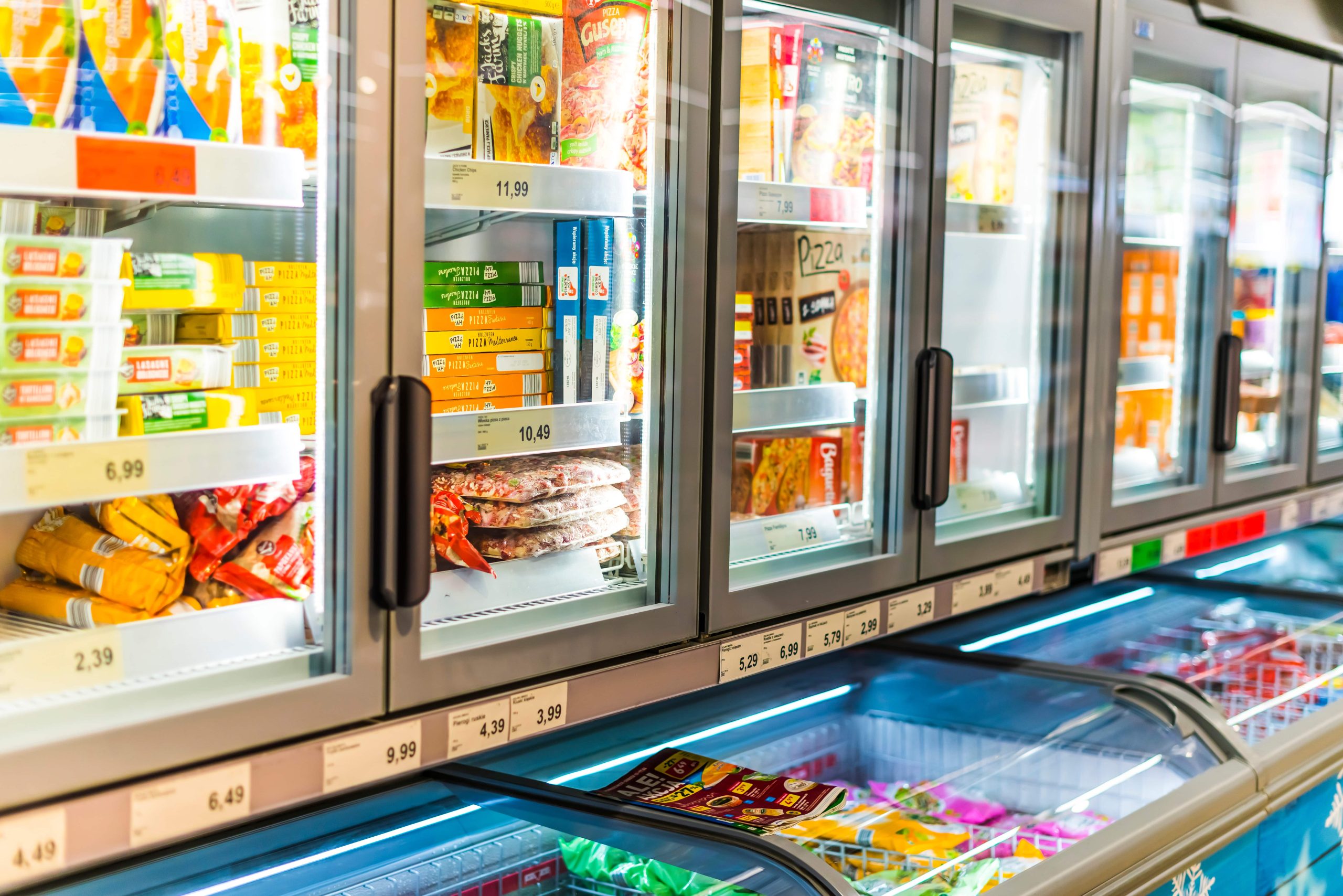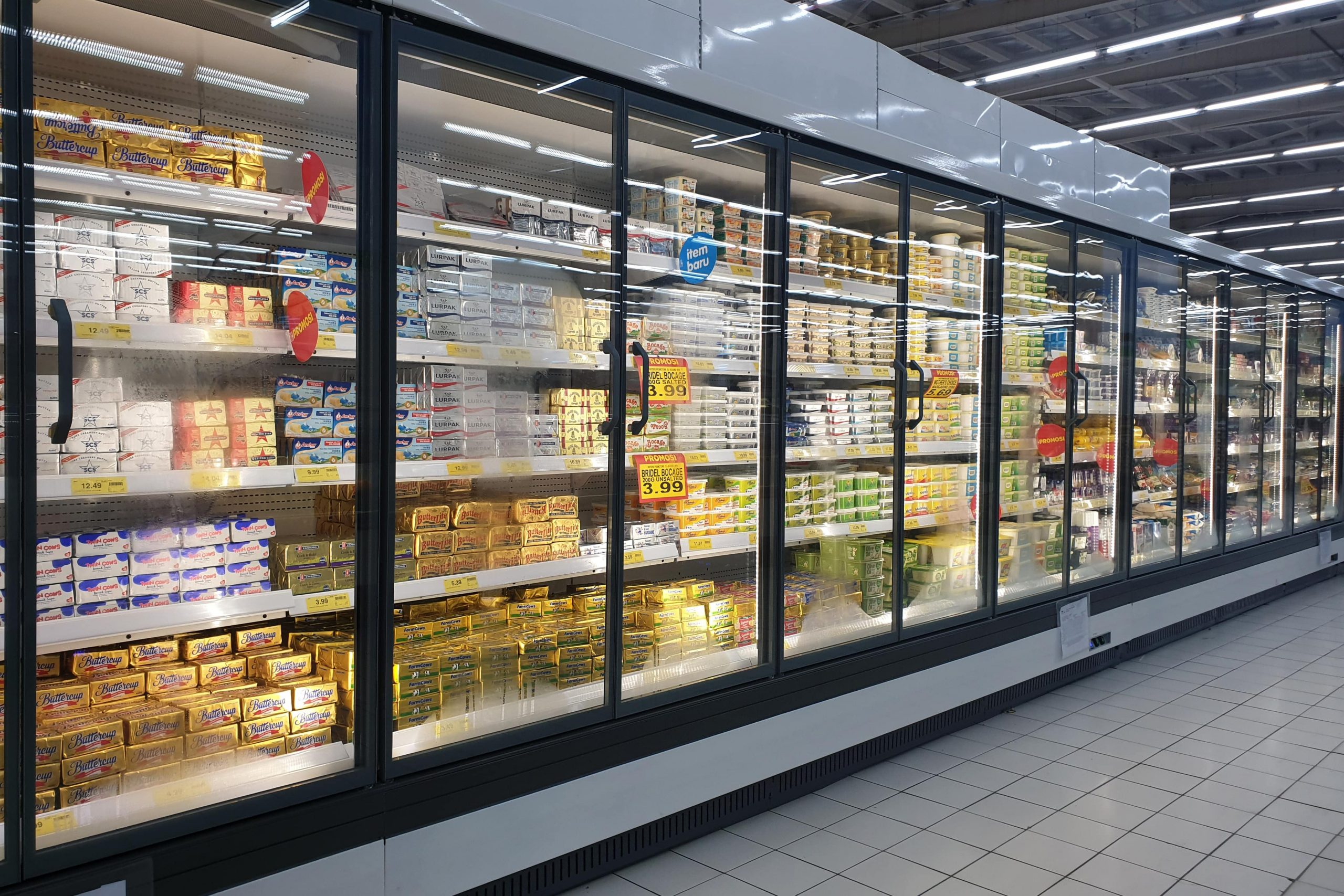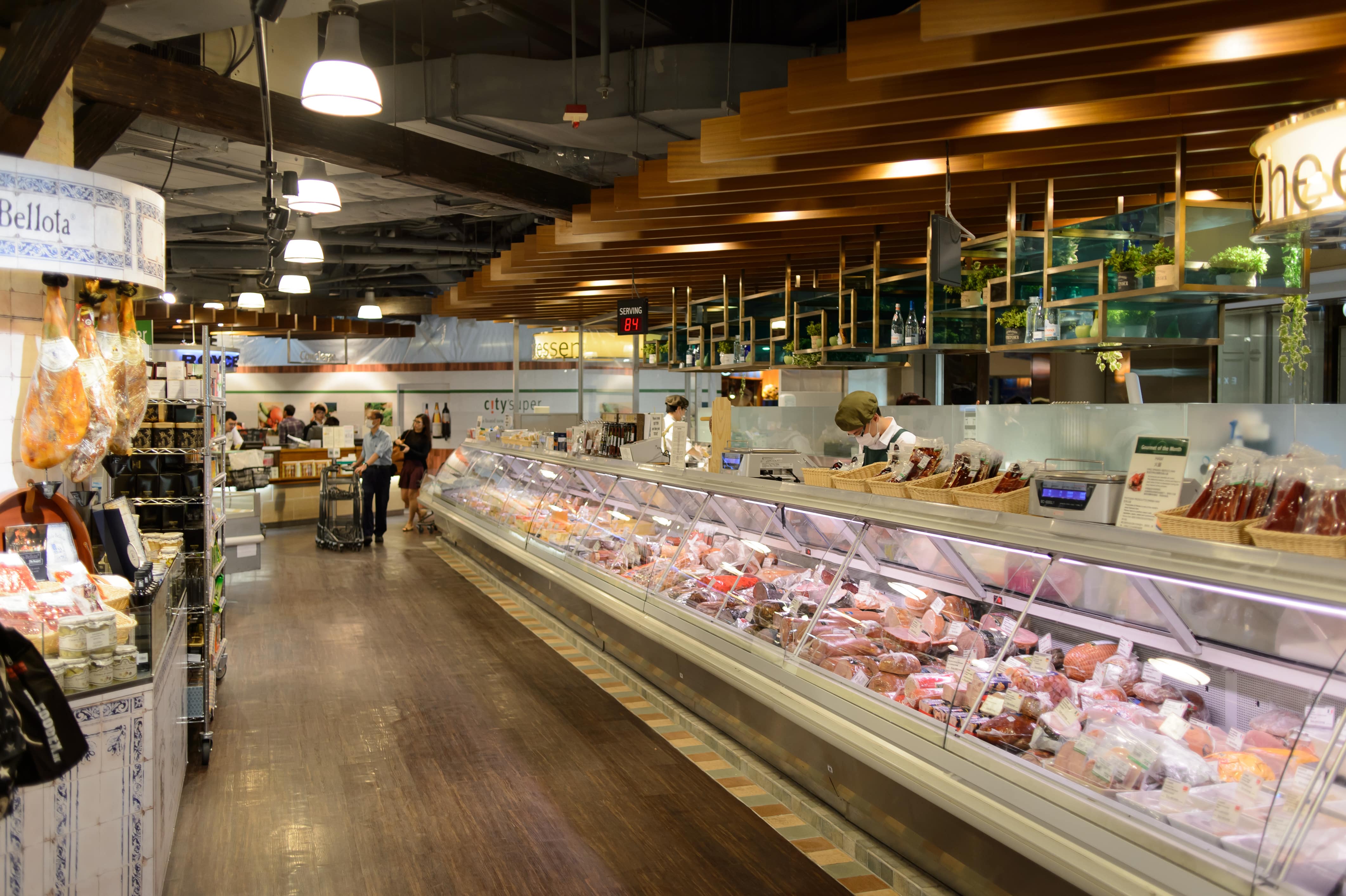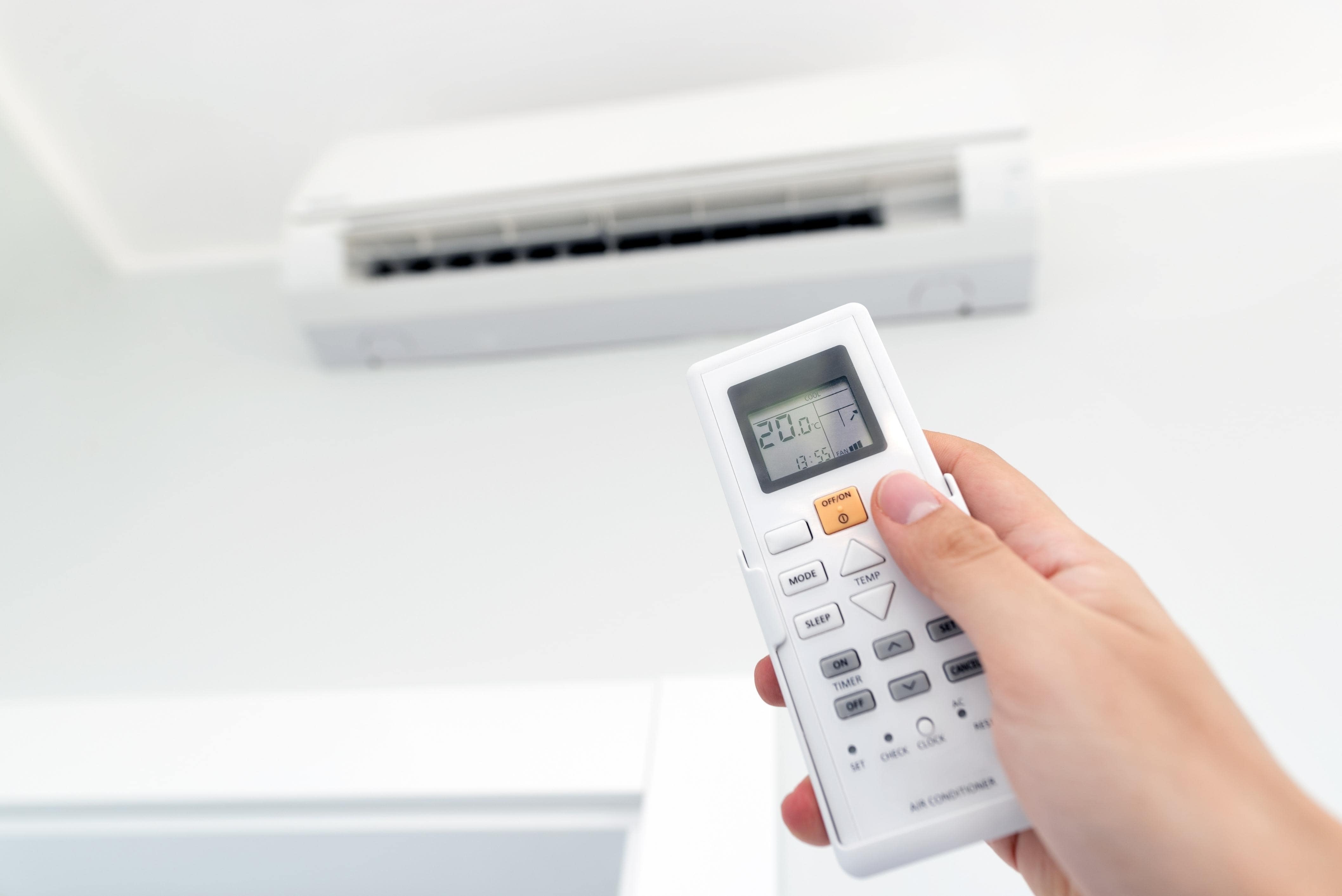What is The Difference Between Commercial and Industrial Refrigeration?
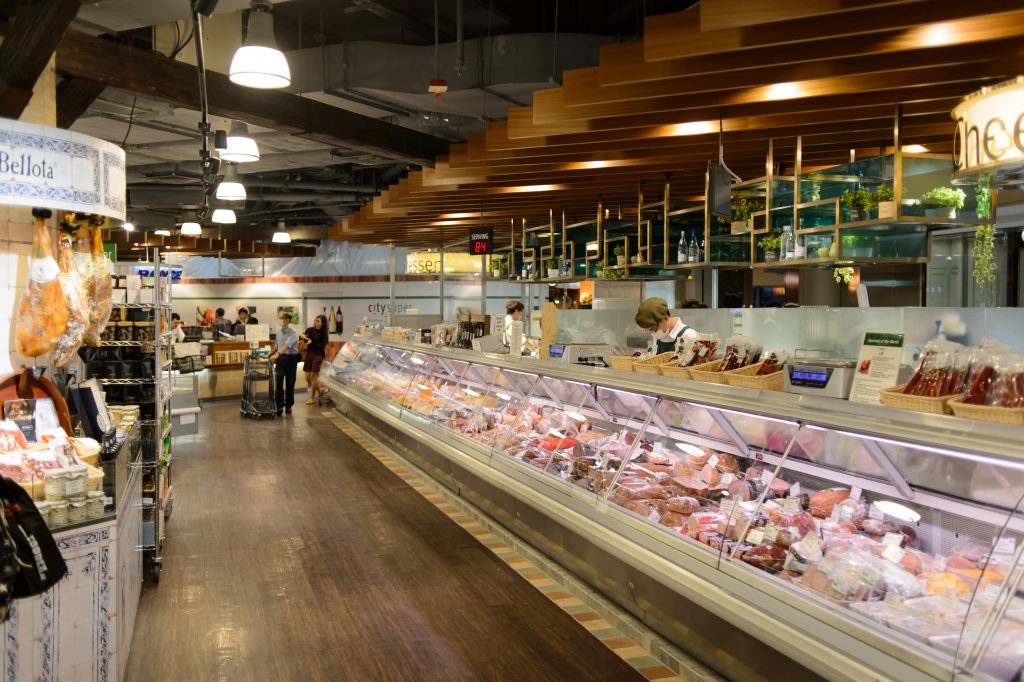
When it comes to both commercial and industrial refrigeration, figuring out what exactly your business needs comes from knowing the difference between the two.
What is Commercial Refrigeration?
Commercial refrigeration refers to the equipment and systems used for smaller-scale areas like retail and food service industries. This includes equipment like refrigerators, freezers, walk-in coolers, and other types commonly found in grocery stores, hospitality with commercial kitchens, and other businesses that deal with food products.
Businesses that use commercial refrigeration include retail, grocery stores, restaurants, convenience stores, and hotels. Commercial refrigeration is a crucial component of these businesses’ operations, as it allows them to store and sell large quantities of food products while maintaining a consistent temperature to ensure freshness and safety.
What is Industrial Refrigeration?
Industrial refrigeration, on the other hand, is used in larger-scale operations such as manufacturing plants, cool room storage warehouses, and ice rinks. The main difference between industrial and commercial refrigeration is the size and capacity of the equipment used.
The industrial sectors that use this type of industrial refrigeration include food processing, pharmaceuticals, and chemical manufacturing. Industrial refrigeration is essential in these industries as it allows for the safe and efficient storage of large quantities of products that require low temperatures.
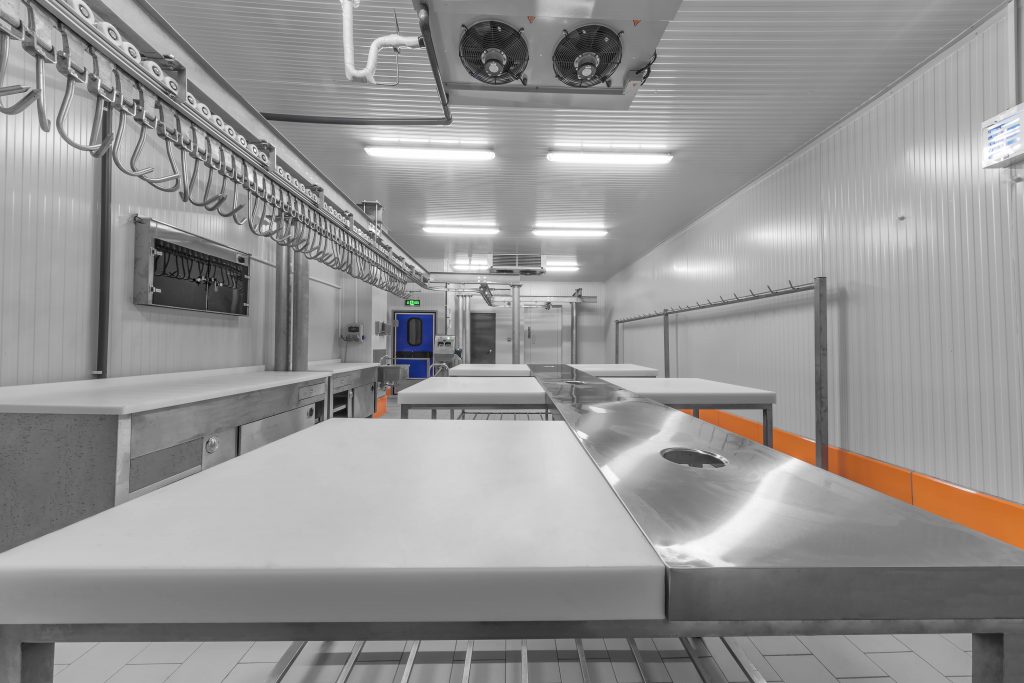
Differences Between Commercial and Industrial Refrigeration
The main differences between commercial and industrial refrigeration are the size and capacity of the equipment, power requirements, temperature range, types of refrigerants used, and maintenance and servicing needs.
Size and Capacity of Equipment
Commercial refrigeration equipment is typically smaller and has a lower capacity than industrial refrigeration equipment. Commercial refrigerators and freezers are designed to store smaller quantities of food products, while industrial refrigerators and freezers can store large quantities of products on a much larger scale.
Power Requirements
Industrial refrigeration systems require more power than commercial refrigeration systems due to their larger size and capacity. This means that industrial refrigeration systems have higher energy requirements and operating costs than commercial refrigeration systems.
Temperature Range
Commercial refrigeration systems typically operate at higher temperatures than industrial refrigeration systems. Commercial refrigeration systems are designed to maintain temperatures between 0 and 5 degrees Celsius, while industrial refrigeration systems can maintain temperatures as low as -40 degrees Celsius.
Types of Refrigerants Used
Commercial refrigeration systems typically use refrigerant gases such as R-134a or R-404A, while industrial refrigeration systems use ammonia or carbon dioxide. Ammonia and carbon dioxide are more efficient and environmentally friendly than traditional refrigerant gases, but they require specialized equipment and training to handle them safely.
Maintenance and Servicing Needs
Industrial refrigeration systems require more maintenance and servicing than commercial refrigeration systems due to their larger size and complexity. Regular maintenance and servicing are essential to ensure the longevity and efficiency of both commercial and industrial refrigeration systems.
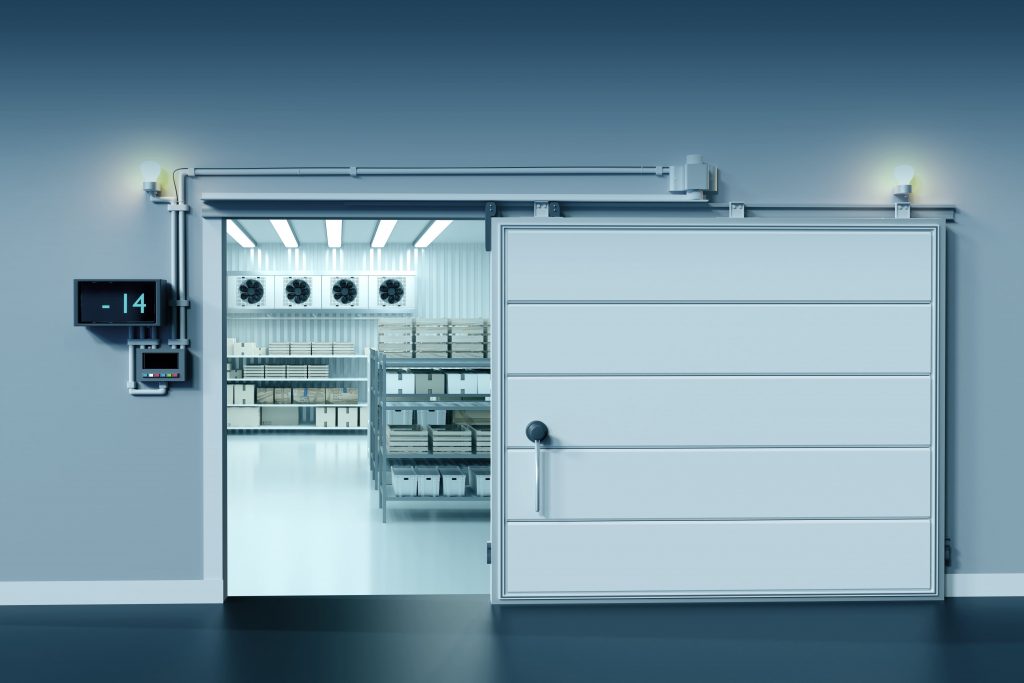
Choosing the Right Refrigeration System for Your Business
When selecting a refrigeration system for your business, it is essential to consider factors such as the size and capacity of the equipment, power requirements, temperature range, types of refrigerants used, and maintenance and servicing needs. Choosing the right refrigeration system can have significant benefits for your business, including improved energy efficiency, reduced operating costs, and increased product safety and quality.
Common mistakes to avoid for business owners come from the selection process. Picking a fridge that isn’t the right size can not only have a monetary impact on you but also cause environmental damage because of the refrigerant gas and regular maintenance and servicing neglect.
Size and Capacity of Equipment
The main difference between commercial refrigeration equipment and industrial systems is their size and capacity. As business owners, before you choose what type of system you want, think about what exactly your business needs are. This can help you work out the right capacity size and give you the appropriate storage space without resulting in unnecessary energy costs and efficiency.
Power Requirements
Consider the power requirements of the refrigeration system and how they will impact your business’s energy costs. Choosing an energy-efficient system can help reduce operating costs and improve the environmental impact of your business.
Temperature Range
Consider the temperature range required for your business’s products and choose a refrigeration system that can maintain the necessary temperature range consistently.
Types of Refrigerants Used
Consider the environmental impact of the refrigerant gas used in the refrigeration system. Choosing a system that uses environmentally friendly refrigerants can help reduce your business’s carbon footprint and improve sustainability.
Maintenance and Servicing Needs
Regular maintenance and servicing are essential to ensure the longevity and efficiency of your refrigeration system. Neglecting maintenance and servicing can result in costly repairs and reduced efficiency.
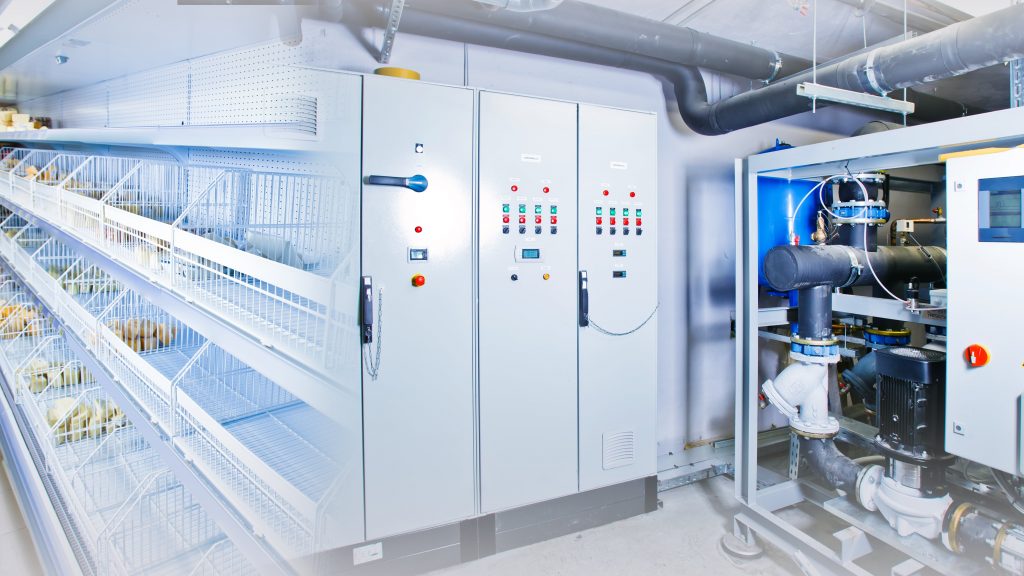
Call Perth Air and Power Solutions
Commercial and industrial refrigeration systems have key differences in terms of size and capacity, power requirements, temperature range, types of refrigerants used, and maintenance and servicing needs. When selecting a refrigeration system for your business, it is essential to consider these factors to ensure that you choose the right system for your business’s needs. If you’re looking at what system works best, call us today and we can help create a unit that works for your business and budget.

